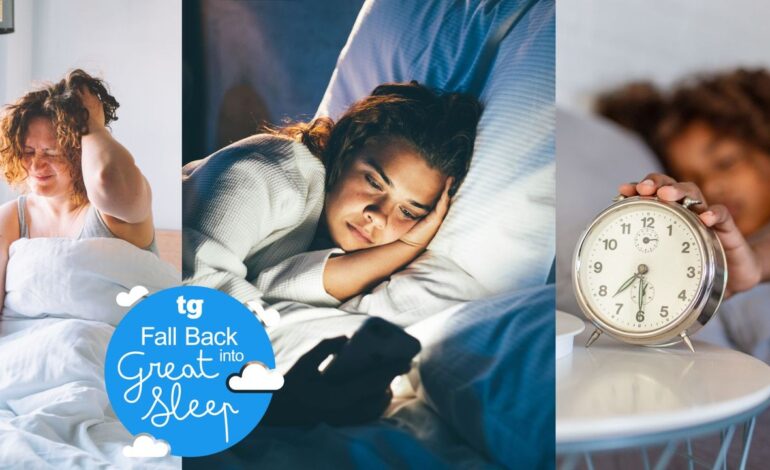Transform Your Sleep: 3 Essential Habits to Regain Rest

To combat the effects of prolonged periods of poor sleep, experts recommend three essential sleep hygiene habits. These strategies aim to reset your body’s sleep patterns and improve overall sleep quality, particularly during the challenging winter months.
Understanding the Impact of Poor Sleep
Poor sleep hygiene can stem from various factors, including stress and environmental conditions. The consequences are significant, as inadequate sleep can lead to diminished focus, increased stress levels, and long-term health implications. According to Dr. Lindsay Browning, a sleep expert, while it is impossible to completely reverse weeks of insufficient sleep, making positive changes is always possible. “Short-term sleep loss can be recovered within a few nights of improved sleep,” she states.
Research indicates that consistently missing sleep can lead to adverse effects such as higher calorie intake and weight gain, alongside harmful changes in insulin processing. Implementing effective sleep habits is crucial for restoring balance and enhancing overall well-being.
Three Key Sleep Hygiene Habits
Establishing a consistent sleep routine is vital for better rest. Here are three gold-standard tips to help you regain control over your sleep patterns:
1. Set a Consistent Bedtime
Maintaining a regular sleep schedule is fundamental. Dr. Browning emphasizes the importance of a consistent wake-up and bedtime, stating that it helps develop a robust circadian rhythm. Disruptions in your sleep schedule, such as sleeping in on weekends, can lead to social jetlag. This inconsistency complicates Sunday night sleep preparations, making Monday mornings more challenging.
2. Maximize Daylight Exposure
During winter, reduced daylight can hinder sleep quality. Integrative sleep specialist Ed O’Malley points out that natural light regulates melatonin, the hormone responsible for sleep. Morning light exposure suppresses melatonin secretion, promoting alertness. Conversely, diminished sunlight can lead to protracted periods of melatonin production, making it harder to feel awake.
Morning light also helps with the natural increase in cortisol, which enhances alertness. Therefore, making a point to spend time outdoors in natural light can significantly improve sleep quality.
3. Reserve Your Bedroom for Sleep
Refraining from activities such as working, watching television, or scrolling through your phone in bed is crucial. O’Malley advises that the bedroom should function primarily as a sleep sanctuary. Engaging in various activities in bed sends conflicting signals to the brain, making it harder to transition into sleep. Keeping the bed exclusively for sleeping reinforces the association between the bed and restfulness.
Challenges of Winter Sleep
The winter months can exacerbate sleep difficulties due to shorter days and colder temperatures. Dr. Browning highlights that decreased sunlight exposure influences our circadian rhythms, which guide sleep patterns and overall productivity. A lack of natural light can also reduce serotonin levels, potentially leading to lower moods. Recognizing these seasonal challenges is key to adapting sleep strategies effectively.
Additional Sleep Strategies
As a health and fitness journalist, I have incorporated various strategies over the years to enhance my sleep quality. Here are some personal non-negotiables for winter:
Creating the Right Sleep Environment: Maintaining cool bedroom temperatures is essential. The ideal sleeping environment should be between 18 to 21 °C (65 to 70 °F). I ensure proper ventilation and manage heating to keep the room comfortable without overheating. Wearing breathable pajamas and socks can also aid in temperature regulation.
Considering Magnesium Supplements: Magnesium glycinate has been beneficial for enhancing my sleep quality. A review of recent studies indicates a positive correlation between magnesium supplementation and improved sleep metrics, including sleep efficiency and duration. Consulting with a healthcare provider before starting any supplements is crucial.
Utilizing Technology: I monitor my sleep patterns with a Whoop tracker, which provides insights into my sleep cycles and factors influencing my rest. This data allows for personalized recommendations, ensuring I can adapt my sleep habits for optimal recovery and performance.
By adopting these practical habits and recognizing the unique challenges of winter, individuals can significantly improve their sleep quality and overall health.






